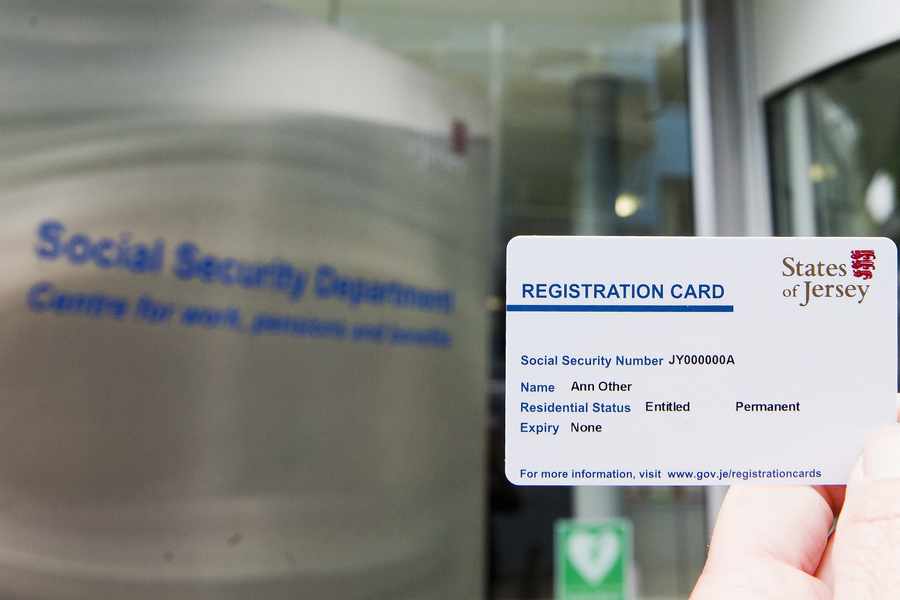Figures released to the JEP following a Freedom of Information request show that there were 5,895 non-locally-qualified licences held last year – compared to 8,836 in 2010.
However, the number of registered businesses has increased by 883, to 7,990, over the same five-year period, which means that firms have either reduced the number of workers they employ or are employing more locally-qualified staff.

There are more than 70 jobs on the JEP’s website at the moment.
The data also shows that the number of licences for people brought to the Island for essential work – formerly J-Category and now licensed workers – has increased by over 150 since 2010, from 1,120 to 1,250 in the private sector, and from 547 to 570 in the public sector.
The reduction in licences for non-locally-qualified (registered) staff is a direct result of the States interim population policy which sets out to provide employment for Island residents while restricting the number of migrants to 325 annually.
The policy has had an adverse effect on some employers in the tourism industry. The Jersey Hospitality Association say that despite their best efforts to employ locally-qualified staff, there are not enough available for the summer months.
Jersey Pottery director Robert Jones said that the business had ‘tried incredibly hard’ and recruited over 50 workers from Social Security’s Back to Work scheme which resulted in ‘little retention’.
‘We are still persisting and the scheme has adapted this year, with a new incentive, after talking to the industry,’ said Mr Jones.
‘We suggested that instead of spending a lot of money to train people in a classroom, they would do better to put them in the working environment.
‘We want as many locally-qualified people as possible in our business, but it is challenging – our business is seasonal, so we need more licences in the summer.

‘It is a nice concept, to bring unemployed people into the hospitality sector, but in reality they need the skills. I always say that if they have a positive attitude and a smile we can train them, but they’ve got to have the right attitude.
‘Certainly Highlands is doing a great job with the new apprenticeship scheme and we’re taking two students this year, which is really good.’
Claire Reynard, group personnel and training manager at Seymour Hotels, said that over 50 people had attended a recruitment day at the Merton Hotel and that she had been impressed by the standard of applications.
‘Our biggest issue is that we do not have enough full-timers, not just room attendants and receptionists but also for Kids Club, and lifeguards. Of the 50 we did see, there were some very good people there, so it is not all negative.’
Assistant Chief Minister Paul Routier, who has responsibility for population matters, said: ‘We have had high unemployment and we needed to get people into work – that’s what we’re trying to achieve.
‘But when businesses come to us, if they can demonstrate they need specific skills of value to the Island, we can decide to give licenses,’ he said. ‘We react to any applications that we get.’

MORE than 1,200 immigrant work licences were removed from Jersey businesses during ten months in 2013 and 2014 as part of a major drive to get unemployed Islanders back into work.
The licences, which allow firms to recruit people who have lived in Jersey for less than five years, were withdrawn following the introduction of the new Housing and Work Law, launched in 2013 to control immigration.
And the number of jobs available to those who have lived in Jersey under five years was by 840 to try to force employers to take on more long-term residents.
It was also revealed that the vast majority of applications to create new non-local jobs were refused – with 830 of 1,120 rejected.
New posts limited only to local people included jobs at the Sports Direct store and the Alliance Tesco food business.
The job licences have been taken away from 300 established firms and more removals will follow as a group responsible for implementing the Control of Housing and Work Law continue to slash licences that are not being used.

The introduction of registration cards in 2013 means that employers no longer have to prove the residential status of their employees.
Instead, it is their responsibility to check a new employee’s residential status on their registration card before they start work; it is their responsibility to get the card from the Social Security Department.
The registration card will show the person’s residential category. It will be one of four:
- ‘entitled’
- ‘licensed’
- ‘entitled to work’
- ‘registered’
Employers can employ anyone who is ‘entitled’ or ‘entitled to work’ but they must have permission to employ anyone who is ‘licensed’ or ‘registered’.
they must check every new employee’s card. When an employer views an employee’s registration card, they should also:
- ask for photo identification
- take a photocopy of the registration card and photo identification for your records
- check the registration card is in date






